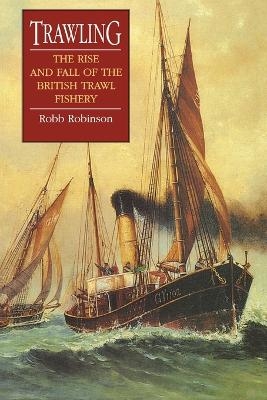
Trawling
The Rise and Fall of the British Trawl Fishery
Seiten
1998
University of Exeter Press (Verlag)
978-0-85989-628-3 (ISBN)
University of Exeter Press (Verlag)
978-0-85989-628-3 (ISBN)
- Lieferbar
- Versandkostenfrei
- Auch auf Rechnung
- Artikel merken
A distinct branch of the multi-faceted fishing industry, trawling dates back at least to the 1370s when attempts were made to prohibit the use of a primitive trawling device, the 'wondyrychoun' on the Thames. But it was not until the late 18th century that the beam trawl was deployed to any great extent, the fishermen of Barking and Brixham claiming credit for pioneering the technique. Thereafter, particularly from the 1840s, trawling eclipsed seining, drifting and line fishing as the principal method of capture, a transition which not only underpinned the growth of east coast fishing stations such as Hull and Grimsby, but also explained Britain's emergence as the largest and most successful of Europe's fishing nations. The rapid adoption of the steam trawler in the 1880s confirmed these trends and facilitated the exploitation of more distant fishing grounds. Two World Wars, a series of Cod Wars and intense foreign competition have eroded Britain's pre-eminence in the 20th century, so much so that by the early 1990s her interests in distant water trawling were negligible. The author adopts a largely chronological approach to chart the rise and fall of trawling in Britain. Using an array of primary sources, he identifies the key factors - growing demand, links with markets, technological change, political rivalries - which have conditioned the performance of the trawling business. A number of themes permeate the work, including the life and working conditions of the trawlermen, the place of trawling in the fishing industry at large, attitudes to the conservation of fish stocks and the role of government in the prosecution and prosperity of the trawl fishery. In dealing with such issues, the book provides a well balanced, thoroughly researched account of a vital arm of Britain's 19th and 20th century fishing industry.
Robb Robinson is Curriculum and Staff Development Officer at Hull College. He has published widely on the subject of the fishing industry, and comes from a family heavily involved with maritime commerce.
The pre-trawling era
The pioneers
Railways and markets
Opening up the North Sea
Free trade and indentured labour
Fisherman and fleeting
The coming of the steam trawler
Beyond the North Sea
Steam and storm
The Great War
Distant-water dominance
Inter-war life and labour
World War II
The cost of trawling
Freezers and factory fleets
Cod wars and common fisheries policies - the beginning of the end
| Erscheint lt. Verlag | 1.9.1998 |
|---|---|
| Reihe/Serie | Exeter Maritime Studies |
| Sprache | englisch |
| Maße | 148 x 229 mm |
| Themenwelt | Geisteswissenschaften ► Geschichte ► Regional- / Ländergeschichte |
| Geschichte ► Teilgebiete der Geschichte ► Kulturgeschichte | |
| Geschichte ► Teilgebiete der Geschichte ► Technikgeschichte | |
| Geschichte ► Teilgebiete der Geschichte ► Wirtschaftsgeschichte | |
| Technik | |
| Weitere Fachgebiete ► Land- / Forstwirtschaft / Fischerei | |
| ISBN-10 | 0-85989-628-5 / 0859896285 |
| ISBN-13 | 978-0-85989-628-3 / 9780859896283 |
| Zustand | Neuware |
| Haben Sie eine Frage zum Produkt? |
Mehr entdecken
aus dem Bereich
aus dem Bereich
der stille Abschied vom bäuerlichen Leben in Deutschland
Buch | Hardcover (2023)
C.H.Beck (Verlag)
CHF 32,15
vom Mittelalter bis zur Gegenwart
Buch | Softcover (2024)
C.H.Beck (Verlag)
CHF 16,80
eine Geschichte der Welt in 99 Obsessionen
Buch | Hardcover (2023)
Klett-Cotta (Verlag)
CHF 34,90


